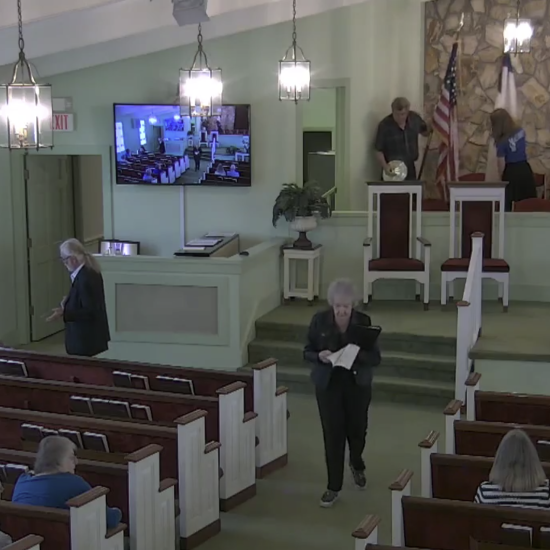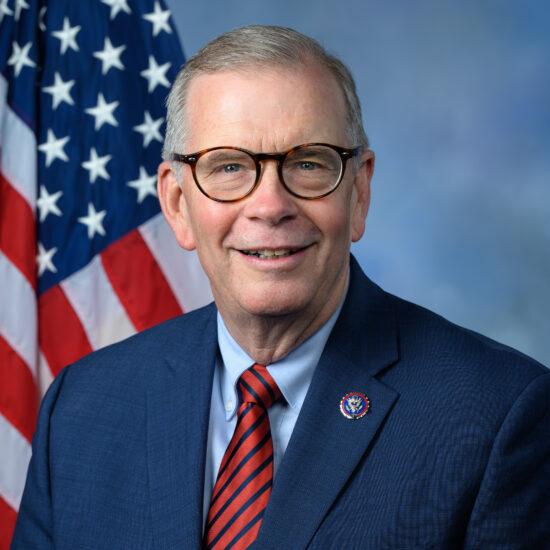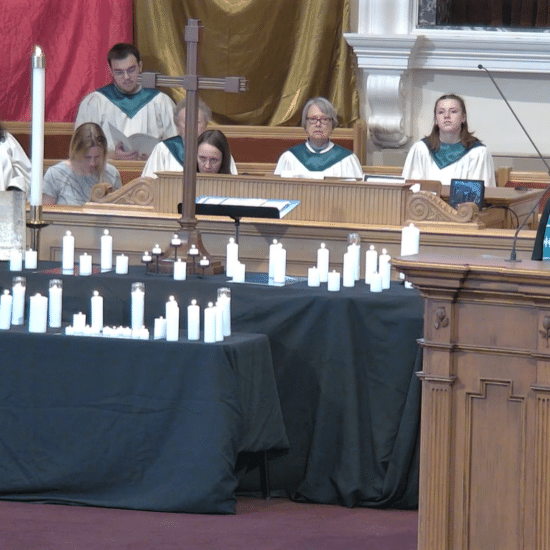WASHINGTON (ABP) – A North Carolina pastor shares his decade-old story of getting rid of women deacons and instituting elder rule at his Southern Baptist congregation in an on-line journal issue devoted to “revitalize” and “reform” of declining churches.

Andrew Davis
|
The lead article of the November-December eJournal of 9Marks Ministries begins with Andrew Davis’ recollection of the Sunday morning of Aug. 19, 2001, when he called on members of First Baptist Church in Durham, N.C., to “repent” for electing their first-ever woman deacon.
Davis said that while finishing up his Ph.D. at Southern Baptist Theological Seminary and preparing to assume the role of senior pastor at First Baptist Church in 1998, “I knew there was a significant flaw in the polity of the church that I would have to address: the issue of gender and authority.”
Davis said First Baptist in 1998 was “a church in need of reform.” It was the oldest church in Durham, founded in 1845, took pride in its heritage and was the place where anyone who wanted to be anyone in Durham would have attended. To him, however, there was a “flawed church polity” where key deacons were allowed to run the church and the congregation typically voted to go along with whatever they recommended.
Davis said he naively assumed the first issue could be resolved by simply changing the church’s bylaws back to what they read before they were changed in 1988 to permit women deacons. Ironically, no woman had been elected to serve as a deacon in the decade after the vote, but that changed after Davis began expressing his views on the subject. Two years into his pastorate his opponents began to force the issue.
On the Sunday in August of 2001, when cards with results from a deacon election were distributed to the congregation, Davis said he stood up and called the church to repent, because one of the new deacons was a woman.
In October he moved to change the bylaws so that only men could be nominated, elected and serve as deacons. His side lost 172-125. His opponents mistakenly thought he would leave. A year later enough old members had left and new ones joined that it was essentially a different congregation. Davis reintroduced the issue and it passed easily.
After enjoying several years of what one lay leader described as “unparalleled influence” in the church, Davis began to advocate a “new, biblical polity: a plurality of elders.” The pastor and lay leaders worked together for more than a year to craft a new constitution and bylaws that was approved by more than 90 percent of church members. Next came votes for five individual lay elders, each approved at 95 percent or higher. Davis said he keeps the ballots of the elder election and the ballots from the failed bylaw change side-by-side in his office as “tangible reminders to me of the amazing journey of church reform that Christ has worked at FBC.”
“The reformation of First Baptist Church is one of the greatest displays of God’s glory that I have ever seen in my life,” Davis concluded. “My prayer is that God will use this narrative to effect similar reformation in other churches around the world for his glory.”
The eJournal is one resource offered by 9Marks, a ministry led by Mark Dever, senior pastor of Capitol Hill Baptist Church in Washington and a prominent figure in the New Calvinism movement that is gaining ground in the Southern Baptist Convention.
Frank Page, head of the SBC Executive Committee, recently described matching seminary graduates steeped in teachings alternately termed “Reformed” theology or the “doctrines of grace” with churches holding different views as one of the greatest challenges facing the nation’s second-largest faith group.
One association in Kentucky deemed Calvinism divisive enough that it removed a church for having a confession of faith that says God predestines who will be saved and damned.
One article in the 9Marks journal offers “Do’s and Don’ts of Church Reform.” Things to avoid in “leading change” include: “Don’t try to change everything in the first year. Or five years,” “Don’t pursue major changes until you’ve cleaned up the church’s membership rolls (so that membership reflects actual attendance and participation)” and “Don’t change something that costs a lot of pastoral capital before you’ve built up that capital.”
“Do’s” include “Teach first, and then act,” “Under-promise and over-deliver” and “Realize that lots will change simply because a new senior pastor is now in place, so you don’t really need to try to change much at first. If anything, you’re going to have to work hard to keep things from changing!”
Another article examines pros and cons of planting churches as opposed to revitalizing existing ones.
In another, John Folmer, a pastor in the United Arab Emirates, said revitalizing an unhealthy church “gets you two-for-the-price-of-one.”
“Not only do you establish a reformed, vibrant outpost for the gospel, but you also eliminate the poor witness that was there previously,” he wrote.
Folmer elaborated: “Sickly churches are, as Mark Dever puts it, ‘terribly effective anti-missionary forces.’ They announce to the community: This is what a Christian is like! This is what a Christian is like! Such false advertising maligns the gospel and actually impedes evangelism in the surrounding area. But when a church is transformed, the gospel surges forward as the community is confronted with a genuine corporate witness for Christ.”
-30-
Bob Allen is managing editor of Associated Baptist Press.
Read related stories:
Church deemed too Calvinist for Kentucky Baptist association
SBC leader cites Calvinism as top challenge






